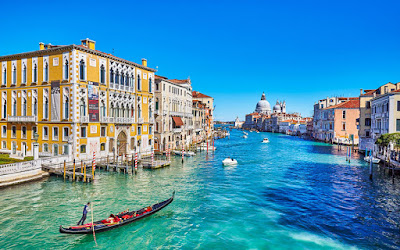COVID-19 leaves Venetian canals pristine: A beautiful illusion ?

Venetian waters run clear for the first time in 60 years In April, the world was marvelling at the images of swans, dolphins, dense shoals of fish, jellyfish and even the occasional octopus, recolonising the Venetian canals, taking advantage of humankind retreating behind close doors. It seemed that there was a silver lining to the pandemic: As one observer noted, “What a marvel this Venice was. This virus brought something….beautiful.” There were precious few reasons to be cheerful during the pandemic as the world went into lockdown, people fought for their lives in hospitals around the world and economies were paralysed but the sight of nature recolonising our empty cities was heart-warming. Wildlife needed only the smallest respite from humankind to re-establish itself. Before the Coronavirus pandemic, Venice faced serious problems including flooding, unsustainable over-tourism, the sinking of historical buildings into the water and a dwindling population. Now, this crisis is promp

